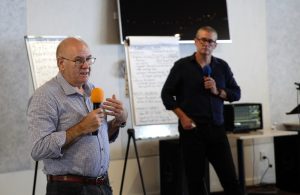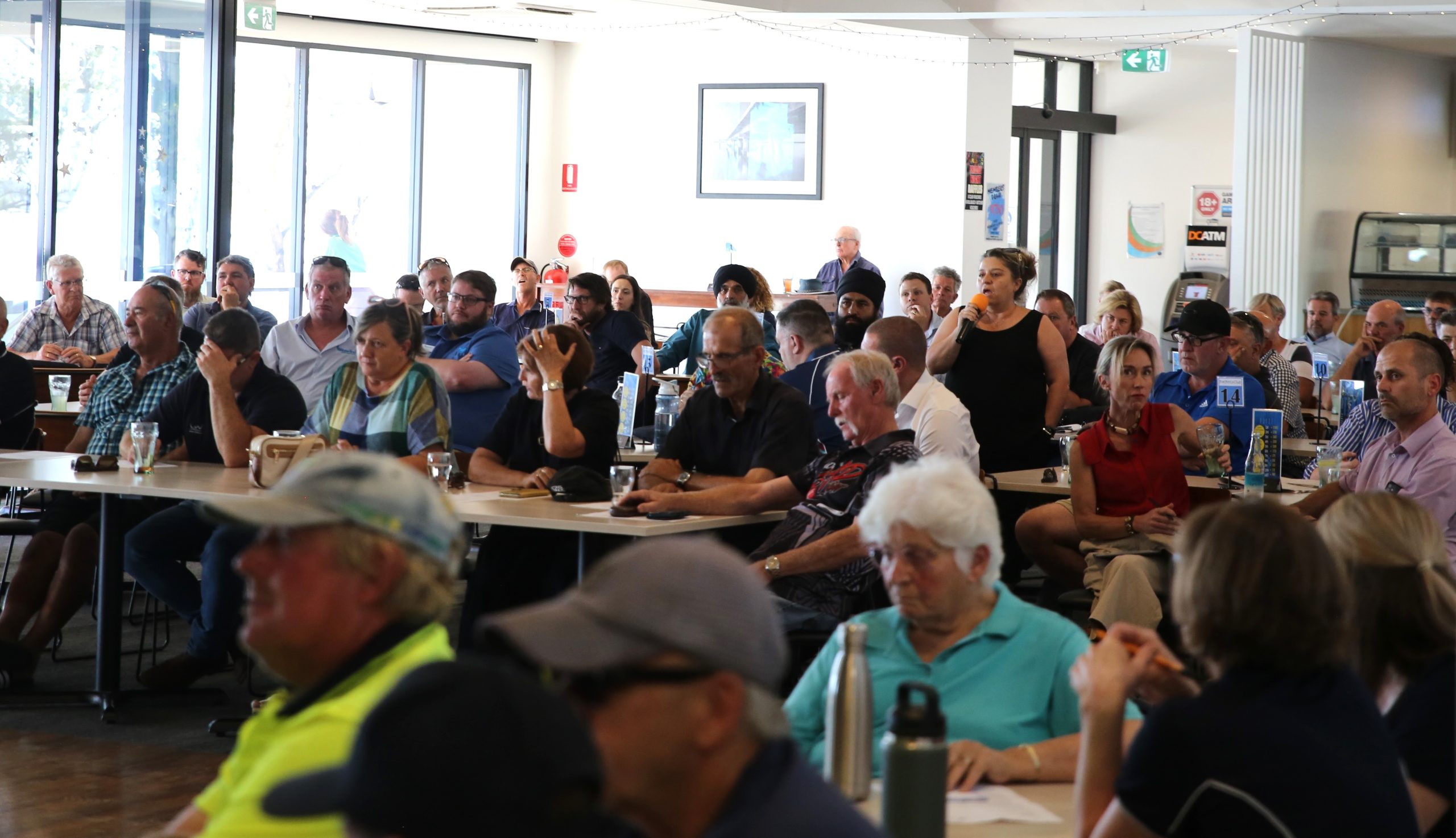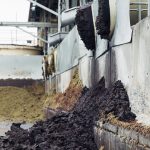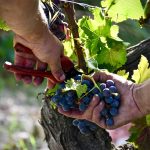Riverland winegrape growers met with industry representatives yesterday to voice their concerns about their current challenges and come up with immediate solutions to put to government.
By Meg Riley in Barmera
Winegrape growers in South Australia’s Riverland have told of their struggles to pay their bills and their desperation to exit the industry altogether at a town meeting held in Barmera late yesterday afternoon.
The meeting was convened by Riverland Wine in response to a request by the South Australian Government to provide it with a concise list of grower requests for short-term help. More than 175 Riverland grapegrowers and industry and government representatives attended.
South Australian Minister for Primary Industries and Regional Development Clare Scriven and the Premier of South Australia Peter Malinauskas were unable to attend the meeting due to the sitting of state parliament. In apologising for her absence, Minister Scriven said she was looking forward to hearing back from Riverland Wine’s representatives about the afternoon’s discussions.
In addition to the room of grapegrowers were Dr Martin Cole, CEO of Wine Australia, and Lee McLean, CEO of Australian Grape & Wine. Also present were Riverland Wine’s Lyndall Rowe, CEO, and Darren Oemcke, independent chair, along with the co-chairs of the Riverland Wine Grape Association Ashley Ratcliffe and Brett Rosenzweig.
The mood among the growers was clear: growers would not be helped by incremental changes or sustainability efforts — they were looking for a lifeline.
Run by strategy and leadership consultant Troy Forrest from Strategy Road, the meeting began by hearing directly from growers about the issues they felt required immediate support, inviting them to offer potential solutions.
Growers said they need financial help, urgently.
“We need help and it’s money help,” said one grower, Maria. “No other type of help. We need money.”
This emergency relief would not simply be a government handout, but rather an investment, suggested another speaker, Ian Penno.
“It gets people out of the wine industry into something new,” said Penno.
“Invest in the Riverland and help us change. You’re not throwing money at an empty room; we will work for it.”
One frustration that appeared to resonate widely among the growers in the room was that they were being encouraged by industry to undertake sustainability courses and certifications at their expense, but such initiatives would often not help them secure contracts with winemakers.

Australian Grape & WIne CEO Lee McLean addresses the town meeting in Barmera
The meeting then moved to a Q&A structure, allowing growers to question the industry leaders and representatives in the room.
Growers took issue with Australian Grape & Wine, with concern that its board, made up of 11 winemakers and three grapegrowers, was unfairly skewed in favour of the winemakers.
Lee McLean responded, saying that the group was listening.
“There’s been a lot of notes taken,” he said. “We made sure that we were here to listen and we really do try our very best to represent your interests at all times.”

Wine Australia CEO Martin Cole speaks at the meeting
Suggestions raised at the meeting to address growers’ challenges included:
- financial support, including relief from bills, loan repayment relief, support packages for people wanting to or being forced to exit the industry
- financial support to pick to ground or pause vineyards for one to two vintages until conditions improve
- introducing licence conditions for growers (similar to the fishing industry) to preserve the industry’s values, standards and quality of grapes
- re-establish a floor price for grapes and financially supplement any difference between the market price and a floor price
- introduce a moratorium on new vineyard plantings, and more oversight on corporate plantings, including ensuring any vineyard reductions were required first by corporates before family businesses
- financial support for growers to transition to different varieties
- altering regional planning zoning rules to release blocks for residential use
- hosting another meeting with government decision-makers
- marketing and business coaching support.
“Our growers need immediate crisis support, and we will be putting their suggestions to our local councils, the State Government and the Federal Government, and we are hoping our industry partners will support our calls to help save the nation’s largest grape growing region,” said Lyndall Rowe.
“It’s not just our growers — as a viable and strong industry in our region, we create jobs for grape pickers, winemakers, wineries and local hospitality venues, transport providers, local retailers and more. The flow on effects if our growers can’t run profitable businesses are significant and far-reaching.”
Rowe said the results of last night’s forum, once circulated and feedback sought among growers, will be put to the three tiers of government and circulated to industry groups in the coming days.
Are you a Daily Wine News subscriber? If not, click here to join our mailing list. It’s free!





















